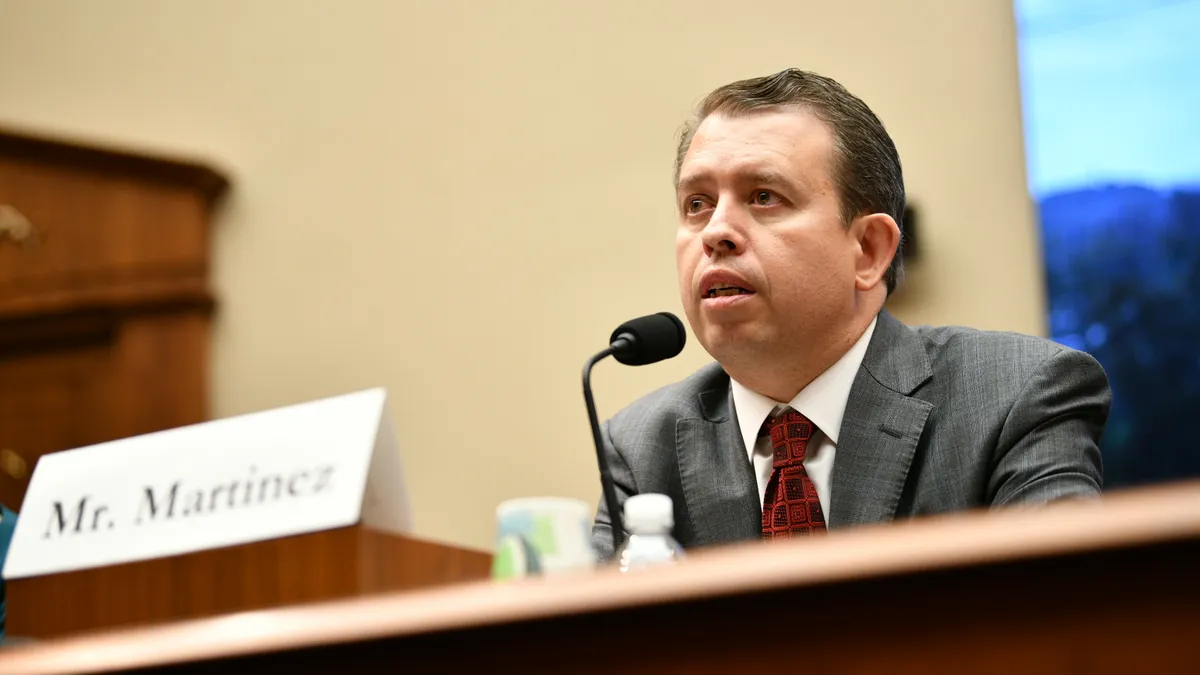The House Committee on Education and Labor was split along party lines during a Wednesday hearing, when representatives learned from witnesses that immigration policies affecting undocumented students and those from mixed families are “creating and perpetuating unprecedented challenges” for educators and districts.
Among those, expert witnesses at the hearing said, are staffing of mental health professionals in schools increasingly needing trauma-informed care, a heightened school climate of fear and anxiety, and a deep-rooted sense of uncertainty among key stakeholders including teachers, parents and students.
“Their biggest worry should be passing tests and getting good grades,” said House Rep. Mark Takano (D-California), a former public school teacher of over 20 years, crediting what he described as “fear-mongering” immigration policies and the “neglect” of U.S. Secretary of Education Betsy DeVos for the challenges many immigrant students are facing.
Instead, Rep. Bobby Scott (D-Virginia), the committee's chairman, said immigration enforcement policies have resulted in “steep declines in participation” among immigrant communities and increased signs of emotional distress among students, as reported by school administrators.
Educators also report having to navigate tense school climates as a fallout from anti-immigrant rhetoric and policies that have put thousands of students and educators at risk.
“Our nation’s educators are on the frontlines,” Rep. Susan Wild (D-Pennsylvania) said. “[Teachers] are no longer teaching in their classrooms, but rather acting in a field for which they really don’t have any additional training nor compensation.”
‘10 times harder’ to earn stakeholders' trust
Superintendent Pedro Martinez of the San Antonio Independent School District in Texas, which serves approximately 49,000 students and is home to a sizable immigrant population, said supporting students and their families affected by immigration policies is a “constant struggle” for his district.
In addition to a drop in student attendance rates and a slight decline in student enrollment, Martinez said in testimony to the committee that family members are becoming less likely to attend school events. “We have to work 10 times harder to earn the trust of parents,” he said.
Nationally, parents are also refusing to participate in government assistance programs including SNAP and WIC, according to pediatrician Olanrewaju Falusi, out of fear of having to disclose their immigration status. The resulting lack of proper nutrition and perpetuated state of stress, experts said, can cause long- and short-term developmental problems in students as they enter the education system.
Because of this “growing culture of fear,” Martinez’s district has invested in training teachers and counselors around trauma-informed practices and has partnered with community organizations to ensure stakeholders are aware of their legal rights.
Best-practice efforts put in place by the district include:
- Ensuring written guidelines and legal rights are available to students’ families.
- Providing educators and health professionals with trauma-informed strategies and training.
- Establishing Meditation rooms in schools where students can deescalate.
In addition, R. Gabriela Barajas-Gonzalez, a researcher and assistant professor at the New York University School of Medicine, encouraged educators to create stable routines for children and build strong relationships with parents. School administrators encouraging their staff to speak to students in their native language can also help put them at ease, she said.
Despite the many challenges facing educators and immigrant families of SAISD, Texas Rep. Joaquin Castro credited Martinez’s “laser-like focus” on improving academic achievement as the reason for the district’s recent turnaround from an F- to a B-grade district.
But Martinez stressed the uphill battle continues this school year. “We don’t get any direct resources from the state or federal government to do this,” he pointed out.
A growing national problem
On the other hand, Rep. Bradley Byrne (R-Alabama) urged lawmakers to consider the “cost of not enforcing the law.” Also a former state school board member, the congressman said an annual $60 billion is spent on children who are undocumented or whose families are of mixed-status.
“Educating those students is expensive,” Byrne said, saying state and local school systems pay for nearly 100% of the cost of ESL programs “to the detriment of other programs.”
Meanwhile, he said teacher salaries are declining, classroom sizes are growing, and resources for students are shrinking, while criticizing immigration for “harming” the U.S. public education system.
While lawmakers mostly agreed the wellbeing of children is a bipartisan cause, proposed solutions starkly contrast. Democratic lawmakers criticized President Donald Trump’s border policies as the root cause to be reversed and its symptoms affecting educators and students addressed. Republican representatives proposed strengthening border policies so immigrants are denied entry to the U.S. and encouraged immigration crackdowns as “the compassionate way to end suffering.
Still, educators seem hopeful. “I really hope they find a bipartisan solution,” Martinez said.





















